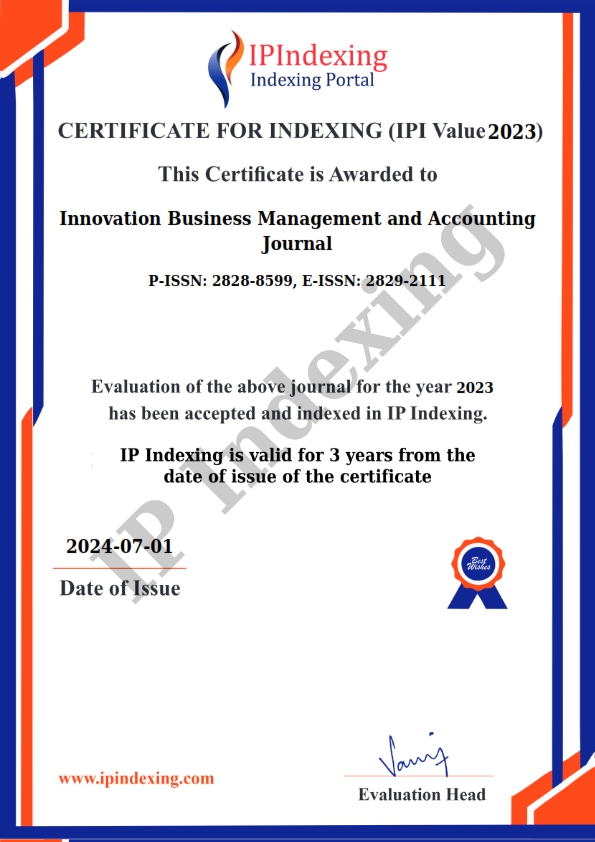Building Indonesian Democracy: Maintaining The Balance Between Civility, Reconciliation, and The Role Of Opposition In Monitoring Power
DOI:
https://doi.org/10.56070/ibmaj.2025.017Keywords:
Civility, Indonesian Democracy, Monitoring Power, Opposition's Role, ReconciliationAbstract
This research aims to discuss the function of the opposition in the context of democracy and the important role of the opposition in monitoring power. The research method used is a qualitative approach with descriptive analysis. The research findings show that Indonesian democracy requires a harmonious balance between maintaining social harmony through civility and reconciliation and ensuring the role of an effective opposition as a watchdog of power. The opposition is vital in maintaining transparency and accountability and encouraging government policies that are more responsive to public interests. Without constructive opposition, democracy risks losing its essence as an open and accountable system. This research contribution highlights the importance of the opposition as a partner to the government in creating inclusive and effective policies. It also emphasizes the need for regulations that strengthen the opposition's position in parliament and build a competitive yet polite political culture. Research recommendations include strengthening opposition rights, reducing fat coalitions, and increasing freedom of speech and media to strengthen a more mature and sustainable Indonesian democracy.
Downloads
References
Andini, R. (2024, April 11). Bamsoet: Kita tidak butuh oposisi, kita butuh gotong royong. RMOL.id. https://rmol.id/politik/read/2024/04/11/616516/bamsoet-kita-tidak-butuh-oposisi-kita-butuh-gotong-royong
Aspinall, E. (2015). Oligarchic populism: Prabowo Subianto’s challenge to Indonesian democracy. Indonesia, 99, 1–28. https://doi.org/10.5728/indonesia.99.0001
Barnard, F. (1972). Between opposition and political opposition: The search for competitive politics in Czechoslovakia. Canadian Journal of Political Science, 5(4), 562–583. https://doi.org/10.1017/S0008423900037130 (DOI dilengkapi)
Malta, Y. A., & Rusdianti, I. S. (2023). Analysis of SAKTI implementation on the quality of management of fixed assets in the Religious High Court of Jayapura. Innovation Business Management and Accounting Journal, 2(2), 55–62. https://doi.org/10.56070/ibmaj.v2i2.42
Maranti, I. U. A., Cahyadi, N. D., Mahayuna, I. M. M., Negara, M. A. A., & Kurniawati, D. (2021). Tinjauan politik hukum peran oposisi dalam pembentukan undang-undang pemberantasan korupsi di Indonesia. Journal Kompilasi Hukum, 6(2), 150–159. https://doi.org/10.29303/jkh.v6i2.78
Noor, F. (2016). Oposisi dalam kehidupan demokrasi: Arti penting keberadaan oposisi sebagai bagian penguatan demokrasi di Indonesia. Lembaga Ilmu Pengetahuan Indonesia.
Rusdianti, I. S., Irmadariyani, R., & Kustono, A. S. (2022). E-finance: Mitigation of fraud tendency in Indonesia. International Journal of Entrepreneurship and Business Development, 5(3), 581–589. https://doi.org/10.29138/ijebd.v5i3.1857
Schmitter, P. C., & Karl, T. L. (1991). What democracy is and is not. Journal of Democracy, 2(3), 75–88.
Solihah, R. (2018). Peluang dan tantangan pemilu serentak 2019 dalam perspektif politik. JIIP: Jurnal Ilmiah Ilmu Pemerintahan, 3(1), 73–88. https://doi.org/10.14710/jiip.v3i1.3234
Suyatmiko, W. H., & Nicola, A. (2019). Menakar lembaga antikorupsi: Studi peninjauan kinerja Komisi Pemberantasan Korupsi. Integritas: Jurnal Antikorupsi, 5(2), 35–56. https://doi.org/10.32697/integritas.v5i2.465
Young, I. M. (2002). Ian Shapiro’s Democratic Justice. The Good Society, 11(2), 76–78. https://doi.org/10.1353/gso.2002.0022
Downloads
Published
How to Cite
Issue
Section
License
Copyright (c) 2025 Ida Ayu Gerhana Saraswati Dharmmesta, Bambang Satriya, Supriyadi

This work is licensed under a Creative Commons Attribution-ShareAlike 4.0 International License.



